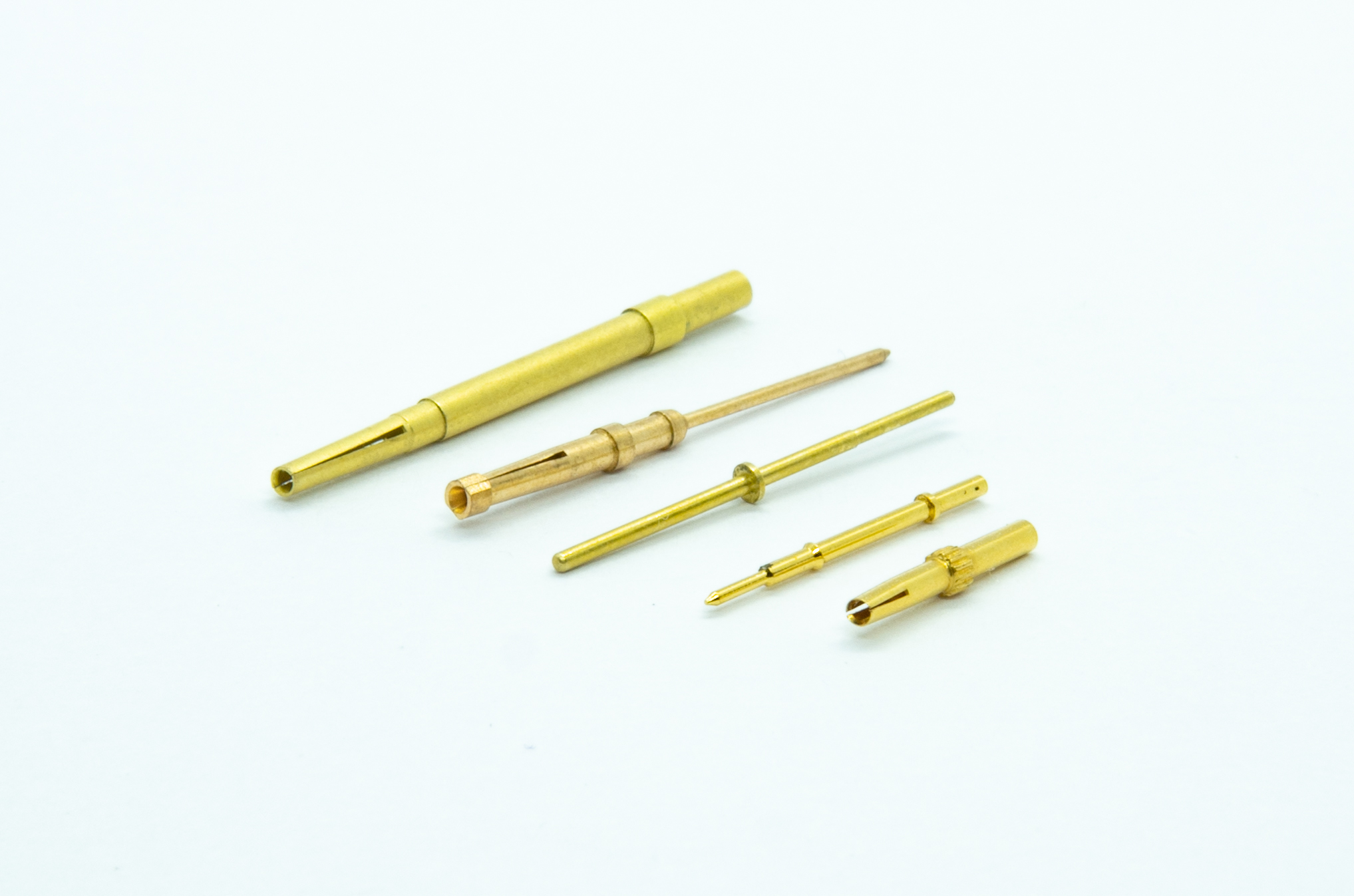By Franky Nguyen, AVF Decolletage
Introduction
Connector Pins and Sockets may look small, but the materials they are made from determine how well they perform. A connector’s conductivity, strength, corrosion resistance, and durability all depend on material selection.
At AVF Decolletage, we manufacture connector pins from brass, aluminum, and stainless steel, each carefully chosen based on the application. This article explains why material choice matters, how each material performs, and where they are most commonly used.
Brass Connector Pins: Balancing Conductivity and Machinability
Brass is the most common material for connector pins. It offers a balance of:
-
High electrical conductivity – ensuring efficient signal transfer.
-
Excellent machinability – ideal for tight tolerances.
-
Corrosion resistance – preventing oxidation.
-
Cost-effectiveness – balancing performance with price.
At AVF Decolletage, we use alloys like C36000, C17300, C54400, C19160, and C18700. Each alloy is selected based on customer needs. For example:
-
C36000 for general-purpose pins.
-
C17300 Beryllium Copper for spring-loaded contacts.
-
C54400 Phosphor Bronze for wear resistance.
Aluminum Connector Pins: Lightweight and Versatile
Aluminum is preferred in industries where weight reduction matters.
-
Lightweight – excellent for aerospace and automotive.
-
Corrosion resistant – especially with anodizing.
-
Good conductivity – suitable for power connectors.
-
Cost-efficient – more affordable than copper alloys in some cases.
We typically machine AL6061 and AL2017 for connector pins. Aluminum connectors are common in aerospace avionics, EV charging, and portable electronics where weight reduction is critical.
Stainless Steel Connector Pins: Strength and Durability
When connectors need mechanical strength and corrosion resistance, stainless steel is the best choice.
-
High strength – withstands stress and vibration.
-
Corrosion resistance – ideal for harsh environments.
-
Longevity – reliable in high-cycle applications.
AVF Decolletage uses 303, 304, 316, and 416 stainless steel for connectors. These are often required in medical devices, defense equipment, and marine electronics.
See our ISO 9001:2015 certification.

How Material Choice Impacts Performance
Choosing the right material affects:
-
Conductivity – Brass > Aluminum > Stainless Steel.
-
Weight – Aluminum is lightest, stainless heaviest.
-
Corrosion Resistance – Stainless > Aluminum > Brass.
-
Machinability – Brass is easiest, stainless toughest.
-
Cost – Brass and aluminum are generally more economical than stainless.
By understanding these trade-offs, OEMs can select the best material for their application.
Industry Applications
-
Aerospace → Aluminum pins for lightweight systems.
-
Automotive → Brass for ECUs, stainless for harsh underhood conditions.
-
Medical Devices → Stainless steel for implants and instruments.
-
Telecom & Data → Brass pins plated with gold for low signal loss.
-
Defense → Stainless steel or nickel-plated brass for extreme environments.
Quality Control in Material Selection
At AVF Decolletage, material certification is part of every order. We provide:
-
Material certificates for every batch.
-
Plating certification when applicable.
-
Traceability reports for aerospace and medical applications.
See our material certification samples.
Conclusion
Material choice defines connector pin performance. Brass provides conductivity and machinability, aluminum reduces weight, and stainless steel ensures strength and durability.
At AVF Decolletage, we help customers select the best material for their connector pins and sockets, combining Swiss CNC machining, ISO-certified processes, and decades of expertise.
FAQ
Q1: Why is brass the most common material for connector pins?
It offers the best balance of conductivity, machinability, and cost.
Q2: When should aluminum be used?
When weight reduction is critical, such as aerospace and EV applications.
Q3: Why choose stainless steel?
For strength, durability, and corrosion resistance in harsh conditions.
Q4: Can pins be plated for better performance?
Yes, gold, nickel, and tin plating are often applied.
Q5: Does AVF Decolletage provide certifications?
Yes, every batch includes material certifications.


